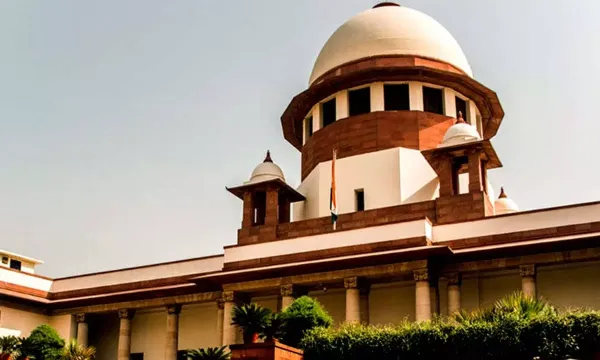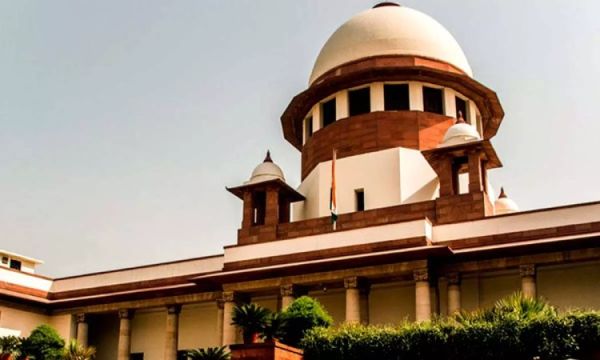
A proposal by the National Commission for Protection of Child Rights (NCPCR) requesting all states and Union Territories to stop supporting Madrasa Boards was delayed by the Supreme Court in an interim order on Monday.

A panel consisting of Justices J.B. Pardiwala and Manoj Misra, led by Chief Justice D.Y. Chandrachud, decided to review the petition submitted by Jamiat Ulema-i-Hind. The court also sent notices to the states of Uttar Pradesh and Tripura, the Center, and the NCPCR.
In accordance with the Right to Education (RTE) Act of 2009, the NCPCR recommended Chief Secretaries of states and Union Territories to transfer non-Muslim students already enrolled in madrasas to mainstream schools. This instruction is being contested.
In their appeal, the Jamiat, represented by attorney Fuzail Ahmad Ayyubi, claimed that there is “absolutely no authority in law to conduct such a blanket exercise as well, neither with the states nor the Union, and certainly not with the NCPCR.” In addition, the “pervasive state action” violates the fundamental rights of the minorities operating these madrasas.
It made reference to a letter sent by the Chief Secretary of Uttar Pradesh, acting on behalf of the NCPCR, mandating that all District Magistrates carry out a thorough investigation into any government-aided or recognized madrasas in the state that admit non-Muslim children and promptly admit all such children to formal education-giving schools; additionally, they must map out any unmapped madrasas and guarantee that students studying there are admitted to other educational institutions for formal education.
In a similar vein, the petition claimed that the Director of Elementary Education in Tripura had instructed all District Education Officers to follow the NCPCR’s orders, and as a consequence, letters directing madrasas to transfer their pupils to neighboring schools had been sent out.
“The impugned action, discriminatory and unconstitutional as it is, has been passed without any reasons, is whimsical in nature, and selectively targets institutions of traditional pedagogy run by a single minority community, being guided by political motives, and thus warrants interference by this Hon’ble Court, being in violation of Articles 14, 19(1)(g), 21, 25, 26(a), and 30(1) of the Constitution,” the petition stated.
Entrusted with the responsibility of protecting children’s rights across India, the NCPCR was founded by the Commission for Protection of Child Rights (CPCR) Act of 2005.